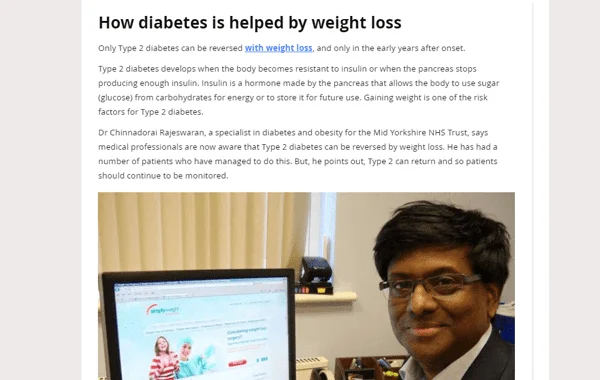As the trend of being healthy and having a fit body has become popular for various reasons and obesity a leading cause of developing many medical conditions and death, many have started to lose weight. With the increase in popularity of Instagram nutritionists, people follow random diets and workout routines. Sometimes the diet you follow might work and sometimes it might not, have you ever thought about if the diet you are following or a workout routine is the right one for you?
In this blog, I will explain how you can follow a healthy routine to lose weight and sustain it.
According to WHO, about 43% of men are overweight and obese worldwide.
Risk factors of obesity
Obesity has become a pandemic which is influenced by several factors. Risk factors include:
- Genetics
- Unhealthy eating habits
- Not being physically active
- Poor stress management
- Poor sleep quality
- Increased screen time
- Steroid medications
- Endocrine disruptors
Consequences of obesity
Being overweight or obese leads to the increased risk of developing many chronic medical conditions like:
- Anxiety
- Depression
- Insulin resistance
- Erectile dysfunction
- High blood pressure
- High cholesterol levels
- Type 2 diabetes
- Sleep apnoea
- Fatty liver and other liver conditions
- Gout
- Gallstones and gallbladder diseases
- Osteoarthritis and musculoskeletal disorders
- Kidney conditions
- Infertility
- Stroke
- Cardiovascular conditions
- Cancer
How to lose weight and sustain it?
Fad diets and crazy workout routines help lose weight but you can not sustain the weight loss. To lose weight effectively and efficiently you can follow the following steps below.
Healthy eating patterns
- Having a balanced diet helps you have all the nutrients you need, you can include colourful vegetables, fruits, lean protein, whole grains and healthy fats.
- Try having smaller meals and increase your number of meals instead of having 3 big or 2 big meals. This will help you in reducing your portion sizes and you can also include healthy snacks.
- Staying hydrated is very important. It keeps your electrolytes in balance. Drinking plenty of water can limit the food intake by making you feel full. Avoid high-calorie drinks and drink high in sugar.
- Have lean protein like chicken, eggs, fish and plant protein like tofu, paneer, beans and legumes. Protein helps preserve muscles in weight loss and makes you feel satiated.
- Consume whole grains like millets, whole wheat, oats, quinoa, and buckwheat.
- Consuming fibre helps improve satiety and also improve bowel movements. You can include vegetables like green beans, bell peppers, beetroots, tomatoes, gourd varieties, corn, pumpkins, squash, and carrots. Fruits like apples, pears, bananas, guava, raspberries, blueberries, kiwi, and mangoes are good sources of fibre.
- Having nuts like almonds, walnuts, Brazil nuts, pistachios, hazelnuts, and seeds like sunflower seeds, flaxseeds, chia seeds, and sesame seeds are a good source of healthy fats. They are high in mono-unsaturated fatty acids and poly-unsaturated fatty acids. You can include olive oil, avocado oil, almond oil, sesame oil, and sunflower oil for cooking.
- Practise mindful eating. You can differentiate between hunger and craving. Eating slowly allows your stomach and brain to connect and signal your brain for fullness. This helps you identify if you are full or not.
Physical activity
Being physically active helps in weight loss. It burns calories, increases metabolism, and enhances muscle strength and flexibility. This improves coordination and balance. It can have immediate and long-term effects on health. WHO recommends exercising 150 to 300 minutes of moderate physical activity or 75 to 150 minutes a day of intense physical activity.
Benefits of exercise include:
- Reduces the risk of developing blood pressure, insulin resistance, and blood cholesterol levels.
- Reduces the risk of type 2 diabetes, heart attacks and cancer
- Improves bone and muscle health. It lowers the risk of osteoporosis and falls.
- Reduces hospital stay.
- It improves mood and depression.
- Being physically active increases the production of hormones such as endorphins, and serotonin and reduces the stress hormone cortisol.
- Being physically active improves your circadian rhythm. You can fall asleep faster.
- Sleep is also important when being physically active because your body needs time to recover and boosts sleep quality.
Sleep hygiene
An integral part of your life is sleep, it is as important as diet and exercise. Having a good night’s sleep improves your brain function, mood and overall health. There is an increased risk of developing many chronic conditions when one is not having good quality sleep.
Sleep and weight loss
- Good quality sleep improves the production of hormones like ghrelin and leptin. High levels of Ghrelin hormones stimulate the appetite, when having proper sleep, the levels of ghrelin are reduced and leptin (satiety hormone) production is increased. This signals fullness to the brain and you stop eating. An imbalance in the hormone production can cause weight gain.
- It also reduces late-night cravings.
- Insufficient sleep slows down the metabolism and it makes the body burn calories more efficiently. Sleeping for 8-9 hours a day improves the body’s metabolism.
- Your muscles undergo tears during exercise, your body needs rest to recover. Your physical performance, energy levels and you can work out effectively when you get good sleep. In a deep sleep state, your body releases growth hormones. This growth hormone helps in building muscle mass, the more muscle mass more calories are burned during rest.
- Sleep improves your mental health and mood.
Points to remember:
- Look for a support system – It is important to have friends, family, and coworkers who are also attempting to lose weight. You can encourage each other.
- Set realistic objectives – Do not make any goals that are impossible to achieve. Do not aim for quick weight loss and set your goals for long-term results.
- Remember that you are not alone – There are many trying to lose weight. Find the right support group that suits you best and engage with them.
Obesity is a serious health risk and it is affecting the likelihood of men. It is important to start your weight loss journey as early as possible to avoid the risk of developing chronic medical conditions. You can successfully lose weight by having a balanced diet, regular exercise and good sleep habits.
Kripa N
Senior Clinical Dietitian, Simplyweight













